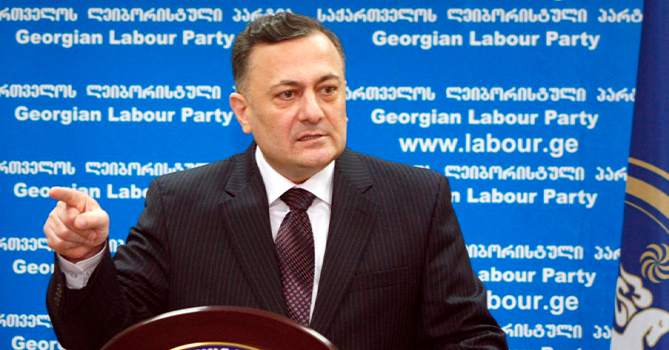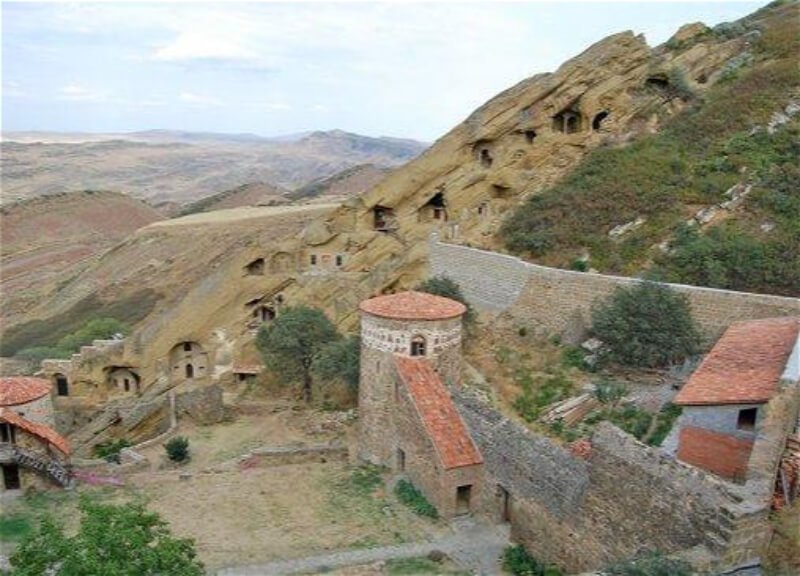July 23, 2025 – Baku
As Azerbaijan and Georgia continue to strengthen their strategic partnership, attempts to sow discord between the two neighbors are resurfacing — this time through another provocative statement by Shalva Natelashvili, leader of Georgia’s marginal Labour Party. His recent remarks, seen as inflammatory and aligned with Russian narratives, have sparked criticism across political and expert communities in both countries.
In a Facebook post, Natelashvili referenced a statement by Azerbaijani President Ilham Aliyev made at the Shusha Global Media Forum on July 19: “Never surrender and never accept violations of territorial integrity.” Aliyev’s remark, widely interpreted as a defense of national sovereignty and a reflection on Azerbaijan’s success in restoring its territorial integrity in Karabakh, was embraced internationally. But in Georgia, it drew an unexpected reaction.
Natelashvili cynically asked whether the same principle applies to David Gareji (known in Azerbaijan as Keshikchidagh), a centuries-old monastery complex located along the still-undemarcated Azerbaijan–Georgia border. He accused Aliyev of “seizing” the site — a narrative Georgian and Azerbaijani authorities have repeatedly rejected.

A Familiar Pattern of Provocation
This is not the first time Natelashvili has attempted to inflame tensions over David Gareji. In 2019, his supporters staged nationalist marches toward the complex, sparking confrontations with Azerbaijani border guards. He has called for Georgia to withdraw from joint military drills with Azerbaijan and Turkey and has demanded a freeze on intergovernmental commissions responsible for boundary demarcation.
His rhetoric is widely seen as fringe populism, targeting nationalist voters while aligning — deliberately or otherwise — with Russian geopolitical messaging.
Azerbaijan–Georgia Relations Remain Strong
Despite Natelashvili’s provocations, relations between Baku and Tbilisi remain resilient. Both governments continue work on the peaceful delimitation and demarcation of their shared border, including the area encompassing David Gareji. Azerbaijani authorities have also maintained access for Georgian pilgrims and clergy to the site, upholding a spirit of mutual respect and neighborliness.
_18_08_50.jpg)
Kremlin’s Echo in the Caucasus?
Natelashvili’s background adds fuel to suspicions about external influence. A graduate of Russia’s Diplomatic Academy, his positions frequently echo Kremlin talking points, especially those targeting NATO, Azerbaijan, or Western alliances. His rhetoric — often ignored in Georgia’s mainstream political discourse — finds traction in pro-Russian media outlets and Telegram channels.
Analysts see his remarks as part of a broader Russian effort to destabilize the South Caucasus and reclaim influence lost after the Second Karabakh War and growing Azerbaijani-Georgian alignment. “Natelashvili is no more than a local amplifier for a foreign agenda,” one observer noted.
Populism Without Weight
Natelashvili’s Labour Party holds no significant parliamentary representation and is largely considered a political sideshow. His political record is colored by scandal, including allegations of trading parliamentary mandates and involvement in murky political deals. Many in Georgia liken him to a “Georgian Zhirinovsky” — loud, theatrical, and irrelevant in actual policymaking.
Mainstream Georgian parties, both ruling and opposition, have distanced themselves from his remarks.
A Region Choosing Stability
Amid ongoing geopolitical turbulence, Azerbaijan and Georgia are focused on forward-looking cooperation — from energy and logistics to culture and security. They are building a future rooted in pragmatism, not populism. Attempts to disrupt this partnership with nationalist provocations or foreign-fed disinformation campaigns are unlikely to succeed.
As one senior Azerbaijani diplomat remarked off the record: “Baku and Tbilisi know exactly where these provocations come from — and they won’t fall for them.”
The South Caucasus is moving beyond post-Soviet rivalry and toward integration. Those who try to rewind history may find that no one is listening anymore.


